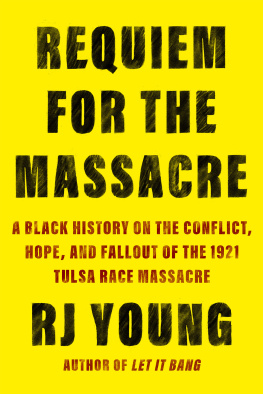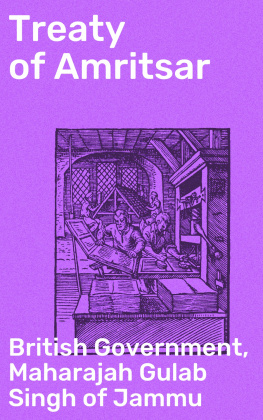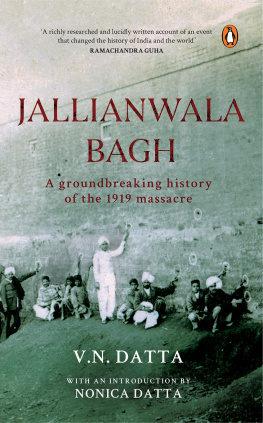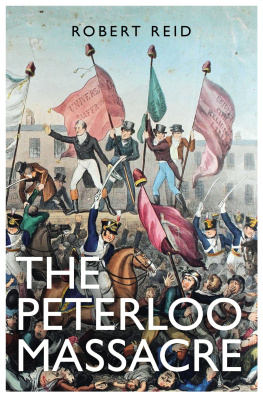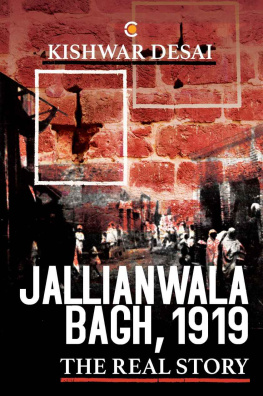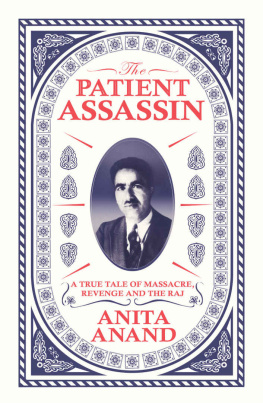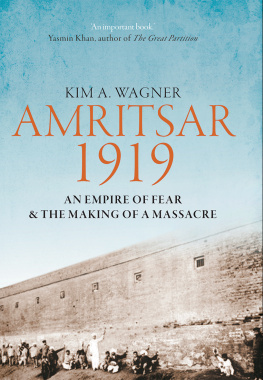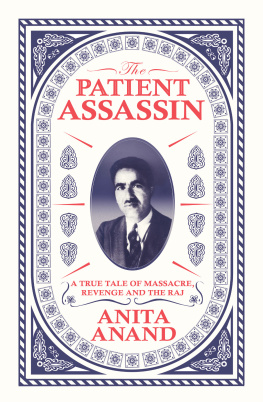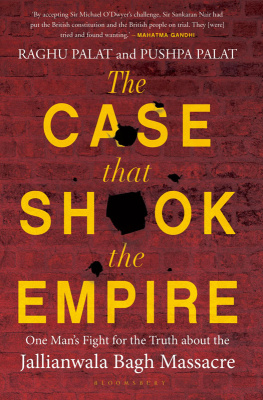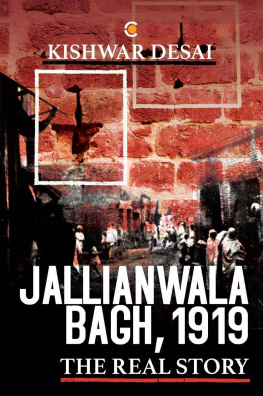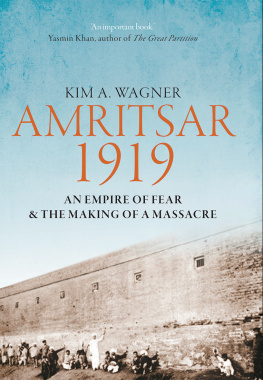THE
AMRITSAR
MASSACRE
THE BRITISH EMPIRES WORST ATROCITY
THE
AMRITSAR MASSACRE
THE BRITISH EMPIRES WORST ATROCITY
VANESSA HOLBURN
First published in Great Britain in 2019 by
PEN AND SWORD HISTORY
An imprint of
Pen & Sword Books Ltd
Yorkshire Philadelphia
Copyright Vanessa Holburn, 2019
Hardback: 978 1 52674 577 4
Paperback: 978 1 52675 146 1
eISBN 9781526745781
Mobi ISBN 9781526745798
The right of Vanessa Holburn to be identified as Author of this work has been asserted by her in accordance with the Copyright, Designs and Patents Act 1988.
A CIP catalogue record for this book is available from the British Library.
All rights reserved. No part of this book may be reproduced or transmitted in any form or by any means, electronic or mechanical including photocopying, recording or by any information storage and retrieval system, without permission from the Publisher in writing.
Pen & Sword Books Limited incorporates the imprints of Atlas, Archaeology, Aviation, Discovery, Family History, Fiction, History, Maritime, Military, Military Classics, Politics, Select, Transport, True Crime, Air World, Frontline Publishing, Leo Cooper, Remember When, Seaforth Publishing, The Praetorian Press, Wharncliffe Local History, Wharncliffe Transport, Wharncliffe True Crime and White Owl.
For a complete list of Pen & Sword titles please contact
PEN & SWORD BOOKS LIMITED
47 Church Street, Barnsley, South Yorkshire, S70 2AS, England
E-mail:
Website: www.pen-and-sword.co.uk
Or
PEN AND SWORD BOOKS
1950 Lawrence Rd, Havertown, PA 19083, USA
E-mail:
Website: www.penandswordbooks.com
Foreword
This year is the centenary of the Jallianwala Bagh Massacre, or the Amritsar Massacre as it is better known in the UK, and I cannot think of a better time for this important study of the event to be published or of anyone more qualified to write it than Vanessa. The Amritsar Massacre cannot be over-imbued with importance in the struggle for independence. Gandhiji and other leaders saw the massacre as evidence that there could not be a liberal empire, and that the only way for Indians, Pakistanis and Bangladeshis to live with dignity and freedom was in an independent country free of Britain. The actions of General Dyer and the British Raj on that day began the final inexorable march to independence that we celebrate every year on 15th August.
I remember my childhood in Punjab, growing up in the region that suffered one of the most heinous acts of colonial repression suffered in British India. I was mere miles from Amritsar and remember from a young age visiting the Jallianwala Bagh, seeing the pockmarked walls where bullets had hit hard stone rather than soft flesh and peering into the dark well that hundreds had sought refuge in from the crack of rifle fire. It left a deep and lasting impression on my soul and has informed my work as an MP against oppression, intolerance and racism. We knew families in villages around us that had lost loved ones, parents and grandparents who had been there and lived through the ensuing repression. It stung the hearts of those in the Punjab and across India even then.
Today, the Amritsar Massacre still looms large in the Indian psyche and millions still partly define the UK through this prism. Sadly, millions of British school children do not even know what the Amritsar Massacre is, never mind the effect it continues to this day to have on our countrys foreign relations. In this the centenary year, I would like to see the British Government again recognize the role it played in the terrible violence that day and take steps to keep the memory of that singularly terrible act alive. I believe we need to have a permanent memorial to the massacre in London, the heart of the British Empire, which will then also act as a memorial to other acts of colonial oppression that have gone unremembered more broadly. I also want to see the Amritsar Massacre become a key part of the curriculum. The history of colonialism is a key part of British history and not one that should be erased. It should be taught across the country as part of lessons on the creation of the modern United Kingdom. I do not want to drive division, distrust and hatred; Britain and India have much to gain from one another, and so much in common. They are the most natural of allies and friends in the modern world, but we must honour those that went before and we do a disservice to todays young if we dont prepare them with the lessons of the past.
Virendra Sharma
Member of Parliament for Ealing Southall
Introduction
On 13 April 1919, Indian-born British army officer General Reginald Dyer strode into the Jallianwala Bagh in the Punjab city of Amritsar and ordered his riflemen to fire on an unarmed crowd. The shooting, lasting around ten minutes, used 1,650 rounds of ammunition and left at least 379 civilian natives dead, with many more wounded. There was no warning issued before the troops opened fire and no medical aid given to the injured and dying; in fact afterwards many were left in agony overnight as a city-wide curfew was imposed. The Jallianwala was a public garden of six to seven acres, completely enclosed by high walls, with only a few very narrow exits available to the crowd; exits that were not large enough for the crowd to disperse quickly. Many who had gathered there that day were simply resting, after visiting the holy city and its temple during the Sikh festival of Baisakhi . The bullets killed Sikhs, Muslims and Hindus, pilgrims and political speakers, farmers, traders and merchants, men, women and children. The youngest victim was just six weeks old.
This massacre has caught the attention of film producers and authors in recent years perhaps displaying how our modern eyes can barely believe that these actions took place in the name of British rule. In 1981, British Indian novelist Salman Rushdie portrayed the massacre in his book Midnights Children , from the perspective of a doctor in the crowd, saved from the gunfire by a well-timed sneeze, with images of the massacre making it into the 2012 film adaptation directed by Indo-Canadian Deepa Mehta. It was also depicted in Richard Attenboroughs 1982 critically acclaimed film Gandhi , with Edward Fox cast as General Dyer, along with scenes from the Hunter inquiry, which investigated the event. In 1984, in the TV series The Jewel in the Crown , the fictional widow of a British officer who is haunted by the inhumanity of the massacre tells how she came to be reviled because she refused to sympathise with Dyer, instead donating money to Indian victims. In Bali Rais 2009 novel, City of Ghosts , fictional stories come to a head on the day of the Amritsar Massacre, with references to Dyer and to Udham Singh, who would go on to assassinate Sir Michael ODwyer, Lieutenant Governor of the Punjab, and Reginald Dyers superior officer. Most recently, in 2014, period drama Downton Abbey made a reference to the massacre as that terrible Amritsar business. While some characters express their disapproval over the shooting, some support it. The event continues to divide opinion today.


